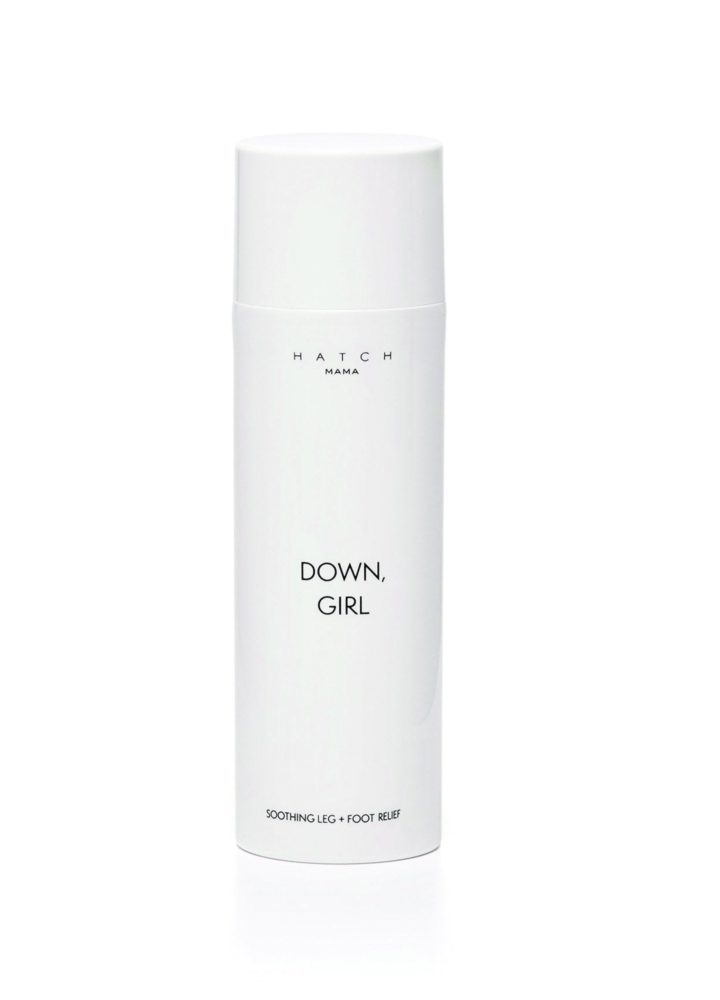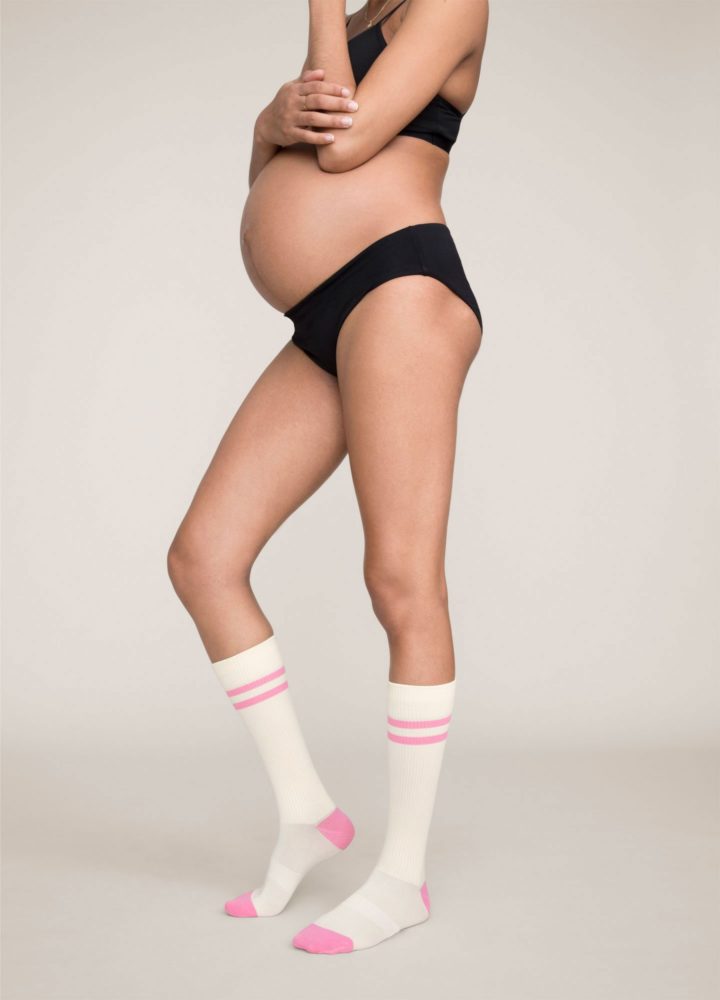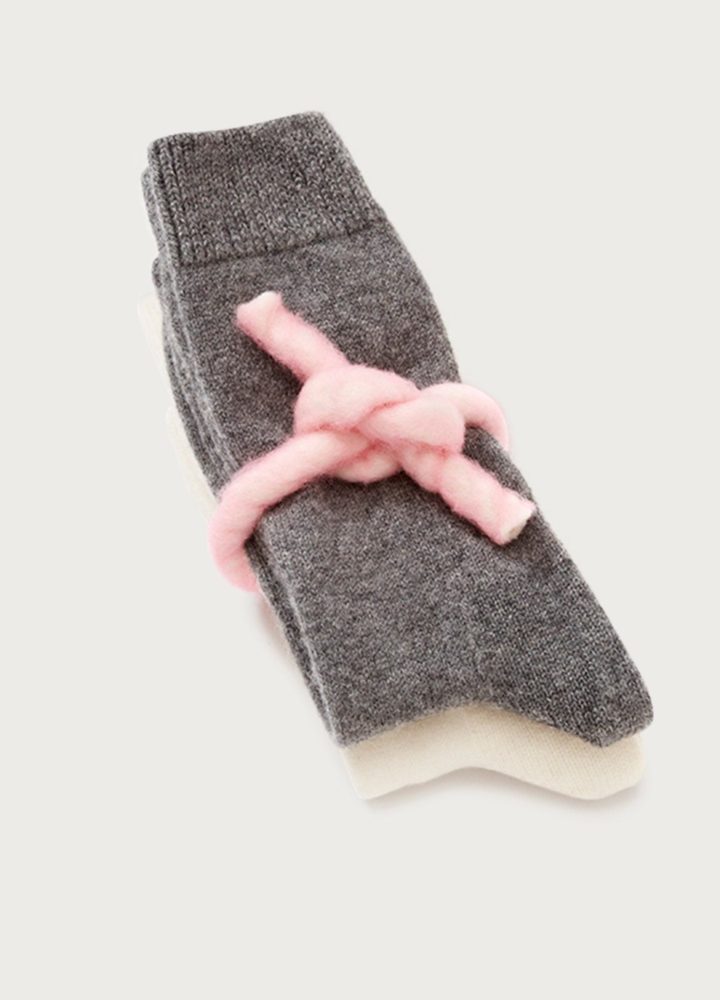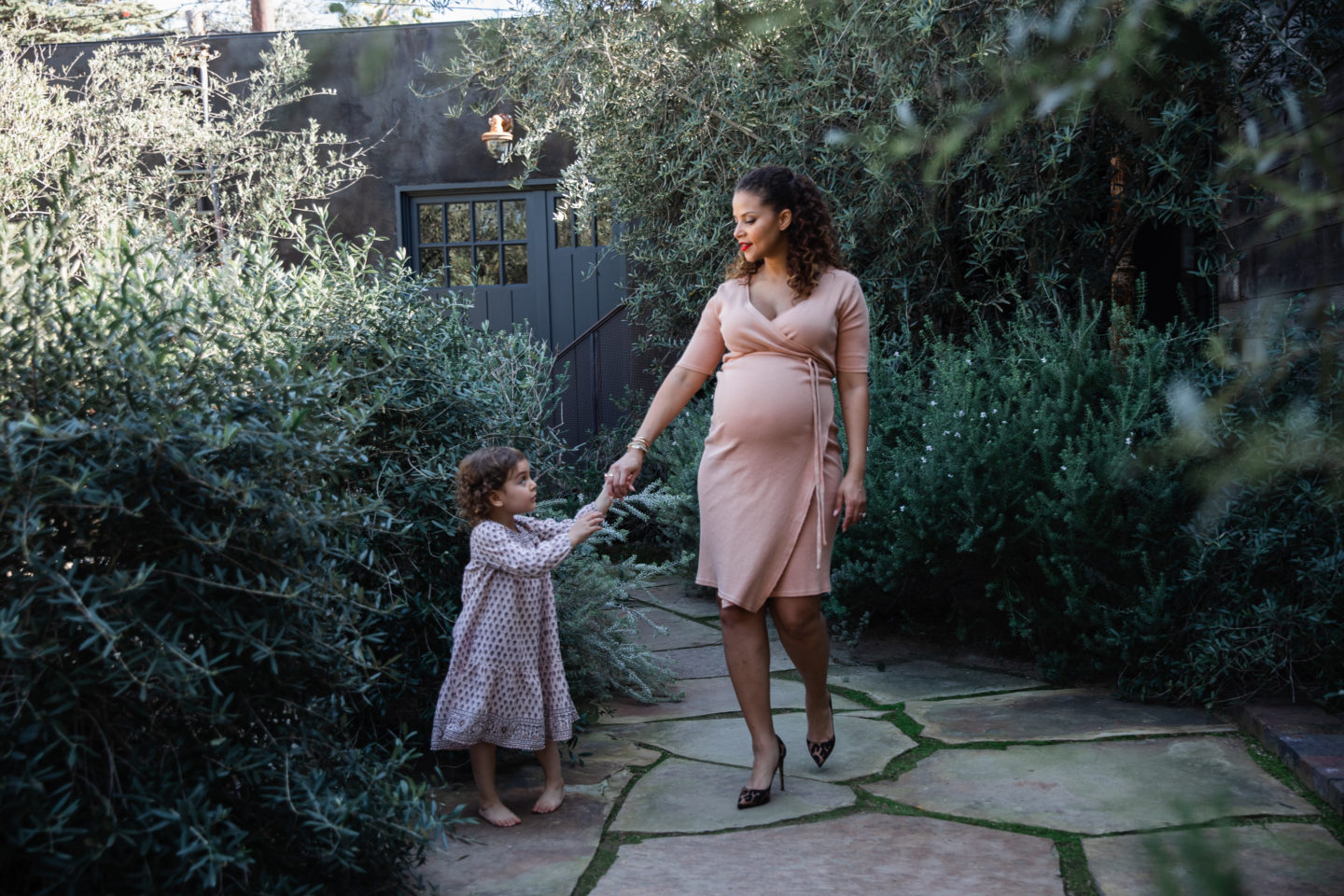Aching feet are a common ailment during pregnancy, and if you find yourself unable to stay off your feet enough during the next nine months, you aren’t alone! The weight gain, swelling, and instability from pregnancy can all contribute to making standing and walking more difficult than usual.
But just because you’re a supermom-to-be doesn’t mean you have to suffer without relief – there are some remedies you can try to find relief from all the most common causes of foot pain during pregnancy.
Keep reading for everything you need to know below:
What Causes Foot Pain During Pregnancy?
Pregnancy is a sometimes magical and sometimes stressful time as nearly everything in your life changes to get ready for the baby, including (and most noticeably) your body. From your first trimester all the way up until delivery, your body is preparing itself to give birth.
One of the ways it does so is by increasing the production of a (very appropriately named) hormone called relaxin, which relaxes and loosens your ligaments and joints to help prepare for delivery.
It would be ideal if relaxin could just target your hips and birth canal, wouldn’t it? Unfortunately, the hormone is pretty indiscriminate. It relaxes and loosens ligaments and joints throughout your entire body — including your feet. This can lead to issues such as overpronation and fallen arches, both of which can cause pain and discomfort.
In addition to hormonal changes, most women gain between 25 and 35 pounds during pregnancy. While totally normal, this sudden weight gain puts additional stress on your arches and feet and can lead to conditions like plantar fasciitis. It can change your center of gravity, which may impact your balance and coordination.
Finally, during pregnancy, your blood volume increases (more blood means more oxygen and nutrients for your growing babe). This means more fluid in your body, though, which tends to concentrate around the feet and ankles (thank you, gravity!). This can cause swelling in these areas and also impact your toenail growth (weird, but true).
In general, there are a lot of factors that may cause you to experience foot pain during pregnancy. The good news is that all of them are totally normal and usually treatable.
Keep reading for the four most common foot problems during pregnancy below.
Foot and Ankle Swelling
Thanks to a combination of hormone changes, increased blood volume, and changes in your circulation, foot and ankle swelling are among the most common pregnancy ailments. Your blood volume actually increases by 45% during pregnancy, and all that fluid has to go somewhere. Thanks to gravity, that usually ends up being your feet.
Other factors that may contribute to or worsen swollen feet include:
- Wearing tight shoes or clothing
- Hot and humid weather
- Long hours on your feet
Most women develop swollen feet and ankles in the third trimester, although it may begin earlier, especially if you live in a humid climate. This pregnancy symptom usually persists for a few weeks or months after giving birth and is typically standard. However, you should let your doctor or healthcare provider know if you experience any of the following symptoms.
These, along with others, could be a sign that something more serious is going on:
- Asymmetric swelling (swelling a lot more on one side of your body)
- Dizziness, confusion, or problems breathing
- Significantly worse swelling, or sudden swelling in your face and hands
How To Deal With Feet Swelling
Just because foot and ankle swelling is expected during pregnancy doesn’t make it any easier to deal with. Luckily, there are some remedies you can try to help ease the swelling. Try making some small changes: Cutting down on caffeine and sodium and increasing your potassium intake can help reduce swelling, as can drinking enough water and staying hydrated. Try to avoid standing for extended periods of time and elevating your feet once you are able to sit down.
Choose loose-fitting clothing that doesn’t pinch around your ankles — chic flare leggings, for instance, might be a comfier fit for soon-to-be moms than tight jeans or dress pants. Investing in a good pair of compression socks can also help, thanks to their ability to prevent fluid accumulation in your feet and ankles.
Finally, getting a foot massage every now and then can do wonders for your swollen feet (and for your mood!). No one deserves a massage more than you do, mama.
Plantar Fasciitis
If you were a cross country star in high school or college, you’ve likely heard of this uncomfortable (but common) food ailment. Your plantar fascia connects your heel bone to your toes, and when it becomes irritated by things like poorly fitting footwear or extra weight, it can cause a sharp pain in your heel. It’s not uncommon for pregnant women to develop plantar fasciitis, thanks to the weight gain and changing shoe size associated with pregnancy.
If you have persistent heel pain and think you might be experiencing plantar fasciitis, don’t freak — it can definitely be treated, usually with a combination of rest, icing, and orthotics. In fact, resting is the most important thing you can do to clear up plantar fasciitis. Try to stay off your feet if possible, and avoid intense cardio like running or jumping, as well as walking barefoot.
You can apply an ice pack to the back of your heel several times a day for 15 minutes at a time to help soothe the irritation. Incorporate some light stretches in your day to relax and strengthen your plantar fascia and the muscles around it.
Finally, if the pain is persistent or severe, talk to your doctor: they may be able to provide orthotics or a short course of medication to help speed along your recovery. They might recommend you go to your local physical therapist for some extra help.
Ingrown Toenails
Thanks to the rapid hormone changes and nutritional needs of pregnancy, you may find yourself experiencing some toenail changes during this time. It’s common for toenails to grow faster during pregnancy, as well as changes like brittleness and discoloration.
These symptoms, in combination with your already-swollen feet, often spell a recipe for ingrown toenails, which can be painful and uncomfortable.
Like many ailments, the best way to manage ingrown toenails is to prevent them in the first place. Avoid wearing too-tight socks and shoes. It’s normal for your feet to go up a half size or more during pregnancy, and buying properly-fitting shoes and socks during this time is well worth the investment. (You might as well treat yourself to some luxurious cashmere socks while you’re at it!)
Be careful not to trim your nails too short. If you can’t reach down or see your toes (hi, third trimester), ask your partner to trim them for you.
And if you do find yourself with an ingrown toenail, call up the pros: Your doctor will be able to provide some solutions to help manage the pain and get rid of that pesky toenail as fast as possible.
Fallen Arches
Earlier, we talked about how increased relaxin in your body loosens up your ligaments, including in your feet. Increased relaxin (as well as estrogen) can cause flat feet or fallen arches, which often creates soreness and pain in your heels and the arches of your feet.
If you’re experiencing this, be gentle to yourself. There isn’t much you can do to prevent fallen arches, and it’s also a pretty normal ailment during pregnancy.
What you CAN do is treat your fallen arches effectively when you do experience them. Avoid walking barefoot or putting a lot of pressure on your feet, such as by standing for extended periods or going on long runs.
Consider using orthotics, which are shoe inserts that help support your feet and arches to improve your comfort and balance. If neither resting nor orthotics are providing you relief, talk to your doctor. They may be able to provide pain relief options and other suggestions to help you manage your fallen arches.
Swollen Feet Before Little Pitter Patter Feet
We all know that with a growing baby comes a lot of bodily changes, but never be afraid to seek out help and find relief if those changes are giving you more grief than joy, especially in your feet.
Most pregnancy-related foot and ankle pain is super normal and easily managed, especially if your partner is willing to pick up some of the slack and provide you some ease during this time. (Nightly foot massages? Yes, please!)
So if you find yourself experiencing any of these common ailments, take a deep breath and try out these solutions to find some relief. And, as always, if nothing is working for you, let your doctor or healthcare provider know.
Relief is in sight, mama — and no one deserves it more than you!
Sources:
Sources:








